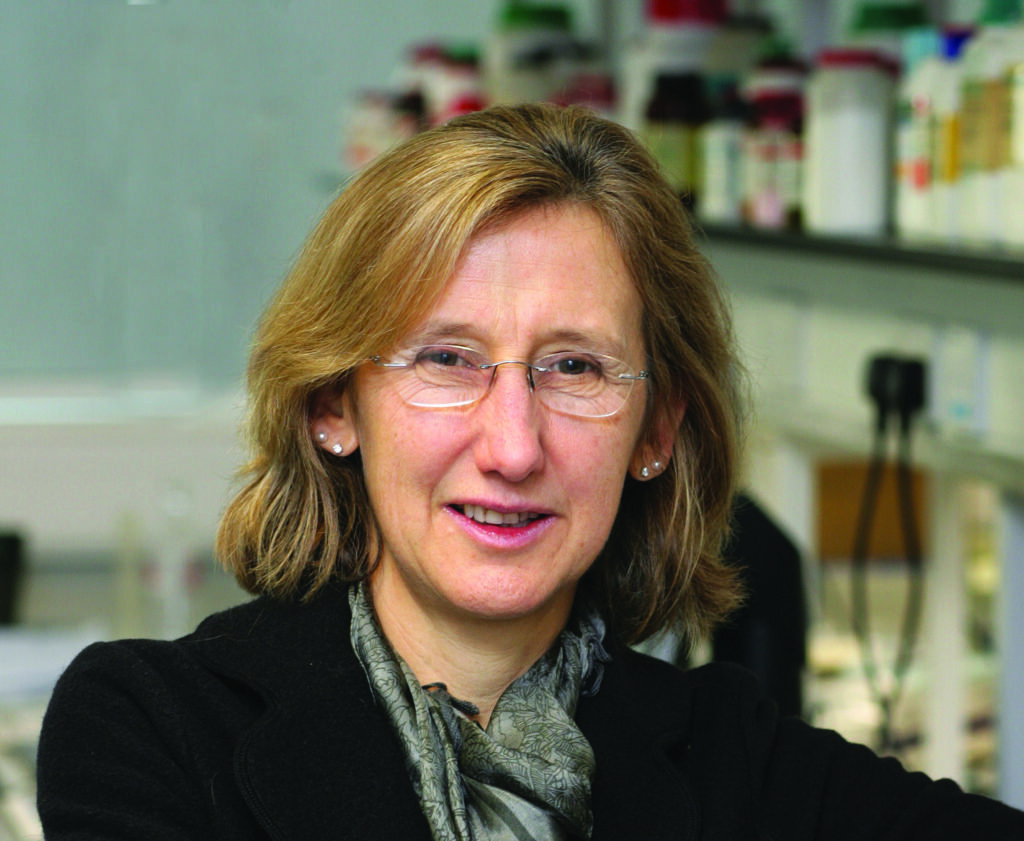A Royal Irish Academy conference focused on the lack of a national genomics policy and bioethical issues during
the Covid-19 pandemic. David Lynch reports
The requirement for a national genomics strategy and a “sustained bioethics structure in the Irish context” were central themes of a recent conference hosted by the Royal Irish Academy (RIA). The RIA life and medical sciences symposium focused on the need for a sustainable framework for deliberating on bioethical responses. The event took place virtually on Thursday 15 April. The afternoon session examined new genomic opportunities and challenges in Ireland.
“It’s two sides of the coin. There are definitely challenges and there are definitely opportunities as well,” said Prof Orla Hardiman, Clinical Lead, HSE National Clinical Programme for Neurology, and Consultant Neurologist at the National Neuroscience Centre of Ireland, Beaumont Hospital, Dublin.

“We have been a little behind the curve when thinking about genetics and genomics in Ireland. We don’t really have a national genetics or genomics strategy… but there is a recognition that we are behind the curve, which is good.
“But our infrastructure is not really fit-for-purpose either. That starts from how do we do genetic testing; how do we handle genetic information; how do we disclose information… who is responsible, where the liabilities are…. How does this fit in with the existing health structure that we have? It’s a structure which isn’t well suited for information flow and rapid disclosure of information.”
Prof Hardiman said she believed there “are moves afoot to deal with these challenges”.
Regarding the opportunities, Prof Hardiman said there will be major new treatments in genomics that will help with “diseases where there is a genetic form to the disease… right through to cancer biology, where lots of the new therapeutics will be around identifying potential new treatments that are informed by genetics.”
“So there is a huge new landscape in therapeutics across the field of medicine and it is a really exciting time to be a physician and clinician because we are getting to a place where we have diseases which we couldn’t treat up to now where there is a real optimistic potential for treatments.”

Prof Owen Smith, Professor of Paediatric and Adolescent Medicine, University College Dublin (UCD), and
Chief Academic Lead, UCD Children’s Hospital Group, agreed with Prof Hardiman on the need for a national genomics strategy.
“Everyone is right, we don’t have a white paper or a policy document on genomics and genetics in Ireland,” he told the conference.
“We really need to get that done as soon as possible because genomics is an exponential technology that has come in over the last 15 years or so and the advances are incredible.”
However, Prof Smith said there also needed to be a change in how all branches of medicine incorporate advances in genomics.
“We need to be looking at genomics differently than we did in the past where we would send a lot of patients to a
clinical geneticist who would have their [genetic] counsellor,” he said.
“As I was saying earlier, this is an exponential technology, the genie is out of the bottle here. So every sub-discipline in medicine will have a genomics component… we cannot ghettoise genomics medicine into clinical genetics anymore. We have to expand it. This is the new era of genomics.
“We have to educate from our undergraduates, right up to nurses and allied professionals, and medics [so they] should be able to deliver that essential counselling for what genomics means. So we need to look at it differently.”
Covid-19
Earlier at the conference, a panel discussed ‘Ethics and public health – from infectious diseases to pandemics: the case of Covid-19’. A number of speakers argued that the public health response to the pandemic would have been strengthened if various bioethical issues had been planned and discussed before its onset. On public health restrictions imposed during the pandemic, Dr Gabriel Scally, President of the Epidemiology and Public Health section, Royal Society of Medicine, UK, said: “I think one of my concerns is that we were having to have these difficult discussions in the middle of a pandemic, we should have been having a lot of these discussions before the pandemic in terms of preparations.”

“But one of the problems in Ireland and the UK has been the poor preparation,” he told the conference. “The concern was that this lack of preparation would hinder our response and I think that has proven to be true.” Prof Siobhan O’Sullivan, Chief Bioethics Officer, Department of Health, emphasised the role of “solidarity” and the “harm principle” in the State’s response to the pandemic.
“So, we’re very much saying we want to minimise harm and taking a very broad view of harm, because it is not just about the harm caused by the virus, which is obviously very extensive, but other harms that result from the restrictions,” she told the conference.
Prof O’Sullivan said she agreed with Dr Scally that it was better to have these discussions in advance of a pandemic.
“But I think what’s interesting is that countries that would have been considered to have the best preparedness plans, on the basis of international indices, like the UK and the US, simply didn’t turn out to be the top performers in how things were handled,” said Prof O’Sullivan.

“I think what this speaks to is that what we actually need is a much broader bioethical discourse in the public space, so it’s absolutely mainstreamed into our public dialogue, so we can reap the benefits of that when we enter a public health crisis.”
Speaking to the Medical Independent prior to the conference, organiser Dr Oliver Feeney (PhD), Researcher at the Centre of Bioethical Research and Analysis, NUI Galway, said that as a result of the significant developments in biotechnology and medicine in recent years, “there is an urgent need to rebuild a new national forum so that Ireland can properly engage with important bioethical issues.”
These issues go beyond the pandemic and include new legislation on assisted human reproduction, embryonic research, genome editing, “as well as the growth of a largely commercial approach to whole genome sequencing in the Irish context.”
“At this point, I am interested in this discussion progressing to a concerted, wider effort to steadily persuade those in Government circles of the merits, critical need, and the benefits of re-establishing a new national bioethics forum,” he said.

The morning session at the RIA conference also discussed the bioethical issues around the rationing of care during the pandemic and the balance between Covid and non-Covid care. Prof Mary Horgan, RCPI President and Infectious Diseases Consultant at Cork University Hospital, emphasised the importance of progressing non-Covid-19 healthcare, which has been substantially impacted by the pandemic. On cancer services, she said there has been a “huge problem” in regard to access to diagnostics “and we will be feeling the impact of that in the long-term”.
Prof Horgan said if preventative care continues to be impacted – such as roll-out of the HPV vaccination programme – there will be negative consequences for population health and the health services in the coming years.

“So I really think resource allocation including redeployment of people from very specialised areas… it meant that we were ‘robbing Peter to pay Paul’. We are a year into this. We really need to be looking at how we ramp up the preventative services in the community and the support services right into the hospital care. We need long-term planning, we need a focus on non-Covid care.”
Dr Scally said he was also concerned about the impact of the pandemic on non-Covid care, particularly in relation to the screening programmes. He said the best way to improve access to non-Covid care was to control the virus. Dr Scally argued that further waves and outbreaks of Covid-19 would impact the provision of non-Covid care.













Leave a Reply
You must be logged in to post a comment.